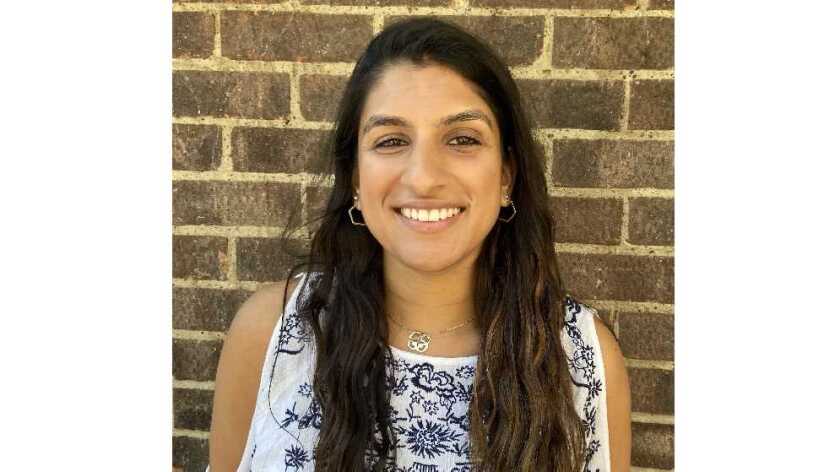Shivani Sondhi, an innovation manager at Tomorrow Street, joined the company only a year ago. She describes her role as “working with other scale-up companies – we mentor them, coach them and work on commercial sales, etc”.
On a day-to-day basis, this involves relationship building with Vodafone to identify opportunities for Tomorrow Street’s partner companies.
For Sondhi, part of this work includes the formation of Tomorrow Street’s women’s group, to get to know the challenges that other women are facing and to discuss ways that they can make changes as a larger group of scale-up companies.
“The reason I set up this women’s group with our eight companies is that the people that I happened to interface with were typically middle-aged men and I wanted to see more diversity,” she says.
She notes that the project is still at the beginning of its development and that the group is trying to create different initiatives.
In addition, as part of the Vodafone Foundation in Luxembourg, her work includes running a project called greenlight for girls, which is a series of STEM broadcasts for young girls in Luxembourg and Kenya: there will be four women speakers from Vodafone and other companies as well as facilitated breakout rooms for the girls to learn about careers in STEM – and be inspired to start their own journey.
The biggest tool that Sondhi uses in these endeavours is Vodafone’s technology, and one of her goals is to give some of the “socio-economic groups that might not have access to it” the access they need.
One project in particular that serves as a great example of this is Bright Sky, an app that supports anyone in an abusive relationship. (Capacity spoke to Rhys Shegar-Astoralli, head of Vodafone Foundation Luxembourg, about Bright Sky in August 2021.)
Sondhi says it is “a classic case of how you use technology for a group of people that are underrepresented, not heard and who maybe don’t have access to the resources they need”.
Vodafone Foundation has also developed such things as “Instant Education”, which is essentially a compact classroom that has things such as a whiteboard and a projector – and, according to Sondhi, is still being used in places such as refugee camps, so that the kids can continue to learn.
The biggest differentiator Sondhi sees between Vodafone and some of its less-progressive peers is that there is a push for a more inclusive working environment from the top down.
“A lot of the senior executives get involved in being sponsors for the initiatives we have,” she says. We go really big for every kind of awareness month or awareness week – which really makes such a difference.”
Having studied business and economics herself, the biggest take-away Sondhi wants to leave for those planning to enter into the telecoms/tech space is that you don’t necessarily have to study the hard sciences to find a place in this industry.
“You don’t have to study a STEM subject to go into a technology company. You may have gained other skills, such as relationship-building or communication, that you can apply to the role,” she says.
“Then you just need to latch on to those technology people and ask them to explain a little bit about 5G, for example, to get your working knowledge. The reason you can do this is that you have your relationship-building skills. Anyone who wants to join a technology company should not feel their options are limited because there are so many opportunities out there.”
As far as strategic priorities are concerned, Sondhi is focused firstly on Tomorrow Street’s eight partner companies and “making sure that we position them within the Vodafone ecosystem” because, as she puts it, “Vodafone is looking to be innovative and move from a telco to a techco”.
To achieve this, the company needs to leverage inventive businesses and look at “how they can develop our own technology as a result”.
Sondhi says: “That’s where Tomorrow Street as an innovation incubator comes in. We will use our technology, and then our partners’, to move forward on that journey towards becoming a technology company.”






